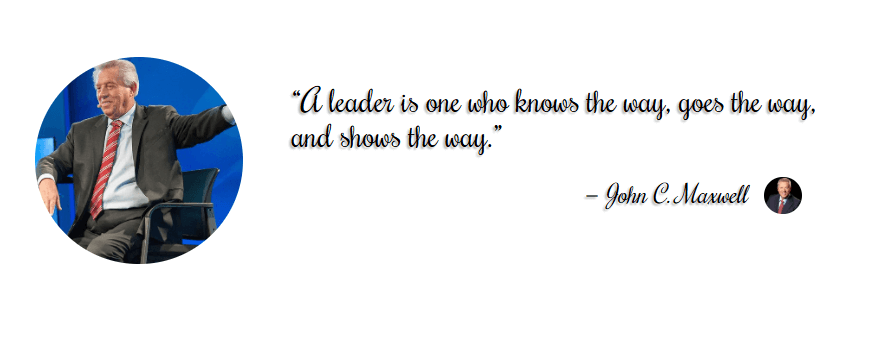John C. Maxwell on Leadership: Know, Go, and Show the Way
“A leader is one who knows the way, goes the way, and shows the way.” — John C. Maxwell
John C. Maxwell’s succinct definition of leadership, “A leader is one who knows the way, goes the way, and shows the way,” captures the essence of effective guidance in three interdependent acts. At its core, this maxim emphasizes that leadership is never a passive endeavor, but that which demands clarity of vision, personal accountability, and generous mentorship.
To “know the way” is to possess a well‑grounded understanding of one’s goals and the pathways to achieve them. This begins with thoughtful reflection and strategic foresight including, identifying the organization’s mission, anticipating challenges, and charting pragmatic milestones. A leader who truly knows the way invests time in gathering data, listening to stakeholders, and refining a roadmap that aligns short‑term initiatives with long‑term objectives. In doing so, they lay a firm foundation upon which others can confidently build.
However, knowledge alone cannot sustain momentum. The phrase “goes the way” underlines the imperative of modeling the behaviors and standards that one espouses. When leaders immerse themselves in the same tasks, processes, and disciplines expected of their teams, they secure credibility and foster a culture of mutual respect. By rolling up their sleeves alongside colleagues, whether that means participating in frontline problem‑solving or embracing the same rigorous feedback loops, they demonstrate resilience under pressure and a willingness to share both triumphs and setbacks. This lived example inspires trust and ignites collective energy.
Finally, to “show the way” speaks to the nurturing responsibility of leadership. Beyond vision‑casting and personal example, leaders must actively guide others through clarifying objectives, providing resources, and offering constructive feedback. They coach emerging talents, celebrate incremental achievements, and gently correct course when deviations arise. By translating abstract strategy into concrete day‑to‑day actions, through clear communication, mentorship programs, or structured training, a leader illuminates each step on the path for their team members. This cultivates autonomy, enabling individuals to grow in confidence and competence.
When these three dimensions converge, leadership transforms from a title into a dynamic force that propels an organization forward. The leader’s clarity of purpose (“knowing”), their integrity in action (“going”), and their commitment to uplift others (“showing”) reinforce one another. Clarity informs behavior, behavior validates vision, and guidance amplifies impact.
Ultimately, Maxwell’s triad reminds us that leadership flourishes not in isolation but through an ongoing cycle of insight, example, and empowerment, ensuring that the entire organization moves with intention, unity, and renewed vigor.

Odusanya Adedeji
Odusanya Adedeji A., is a Licensed & Certified Clinical Psychologist whose domain of expertise cuts across management of specific mental health issues such as, Depression, PTSD, Anxiety & Anxiety related disorders, substance use disorder, etc








